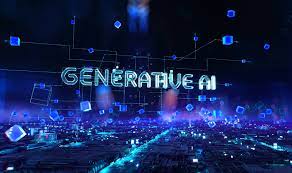
In today’s age of unparalleled technological advancements, the traditional approaches to talent acquisition are swiftly undergoing a revolution, thanks to the integration of Artificial Intelligence (AI). This transformation isn’t just a passing trend; it represents a fundamental restructuring of how organizations source, engage, and onboard talent. AI, incorporating machine learning, natural language processing, and predictive analytics, is driving a paradigm shift in recruitment practices, offering unprecedented opportunities for efficiency, accuracy, and flexibility. From automated resume screening to personalized candidate interaction, AI is revolutionizing every aspect of the hiring process, enabling data-driven decisions, improving candidate experience, and fueling organizational growth. Moreover, AI’s impact transcends individual hiring procedures, permeating the job market itself, where it’s reshaping skill demands, encouraging remote work, and advancing diversity and inclusion efforts.
The Evolution of Talent Acquisition:
Traditionally, talent acquisition has been laborious, plagued by manual resume screening, biased decision-making, and lengthy hiring cycles. However, AI has ushered in an era of efficiency, accuracy, and innovation in recruitment. By harnessing machine learning, natural language processing (NLP), and predictive analytics, AI technologies are reshaping every stage of the hiring journey, from sourcing to onboarding.
The Role of AI in Talent Acquisition:
Gartner predicts that by 2022, 75% of organizations will have incorporated AI into at least one aspect of their HR functions.
Automated Resume Screening: AI-powered tools analyze resumes at scale, utilizing NLP algorithms to identify relevant skills and qualifications, streamlining the selection process while minimizing bias.
Predictive Analytics for Candidate Matching: AI employs predictive analytics to match candidates with job requirements, enhancing recruitment effectiveness and reducing time-to-hire.
Personalized Candidate Engagement: AI-driven chatbots and virtual assistants engage candidates throughout the recruitment process, improving candidate experience and bolstering employer branding.
Data-Driven Decision Making: AI provides actionable insights from vast datasets, enabling recruiters to optimize strategies and enhance talent acquisition efforts.
Impact on Hiring Processes:
Increased Efficiency and Cost Savings: AI automates repetitive tasks, accelerates candidate sourcing, and reduces administrative overhead, leading to significant cost savings and increased productivity.
Enhanced Diversity and Inclusion: By focusing on skills rather than demographics, AI mitigates unconscious biases, fostering a more equitable work environment and driving business success.
Evolving Skill Requirements: AI’s influence on industries and job roles is reshaping skill demands, with expertise in AI, data analytics, and digital technologies becoming increasingly sought after.
Rise of Gig Economy Platforms: AI-powered platforms are facilitating the growth of the gig economy, connecting freelancers with flexible work opportunities and providing organizations with access to specialized talent.
Continuous Learning and Adaptation: In the AI era, continuous learning and upskilling are essential for both employers and employees to thrive in a digital environment and remain competitive in the job market.
In Conclusion, the integration of AI into talent acquisition processes is revolutionizing how companies attract and retain talent. By leveraging AI-driven technologies, organizations can enhance efficiency, improve candidate experience, and make informed hiring decisions. Furthermore, AI’s influence on the job market is driving demand for new skills, promoting diversity and inclusion, and empowering individuals to adapt to changing workplace dynamics. As AI continues to evolve, its impact on talent acquisition and the job market will only intensify, shaping the future of work in significant ways.

(The author is Ms. Yogita Tulsiani, Director & Co-founder, iXceed Solutions, and the views expressed in this article are her own)





